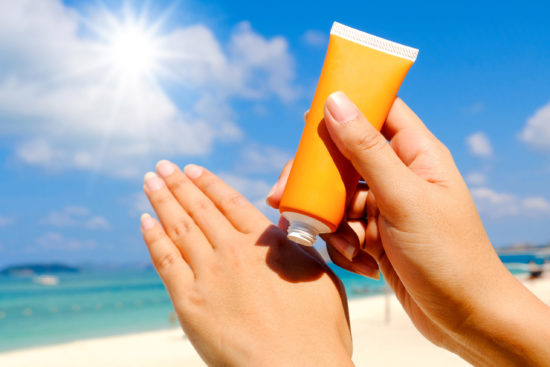Hot Topic: Preventing Skin Cancer

by Brian Zelis, M.D., Family Medicine
Some say Southwest Florida has two seasons – hot and hotter. But the summertime rise in temperatures can really turn up the heat on a sun-related health issue.
Protect Your Largest Organ:
Your skin is the largest organ in your body, it’s living, breathing and constantly changing, so it’s really important to care for it. Skin cancer is the most common cancer in the U.S., and early detection is crucial. Your primary-care physician may be the only doctor you visit regularly, so he may be the first to notice signs of skin cancer.
Get in the Gown:
Don’t be afraid to put on the gown during your annual physical so your doctor can look at your skin more easily. If it’s not easily accessible, it might get overlooked.
An Unfamiliar Risk:
I moved to Southwest Florida from Ohio, and like a lot of people who relocate here, I didn’t really think about the risks associated with sun exposure. I’ve seen more skin cancer here in my first five months of practice than I did in a couple of years up north.
By the Numbers:
In Southwest Florida, it’s vital to wear sunscreen of at least SPF 15 every day. Not just when you golf or go to the beach. And when you expect prolonged exposure, increase the SPF to at least 30. And men, don’t forget the tops of your heads!
Never Too Much of a Good Thing:
It’s a fact that most people don’t apply enough sunscreen. To achieve the SPF on the bottle, you should apply the equivalent of at least a shot glass (two tablespoons) of sunscreen to your exposed areas, and a nickel-sized dollop to your face alone. And sunscreen needs to be reapplied every two hours.
It’s Never Too Early:
Severe sunburns as young children can dramatically increase the risk for really invasive forms of skin cancer. So limiting prolonged, unprotected sun exposure in our children and grandchildren can make a huge difference.
Some Medicines Can Affect Your Skin Sensitivity:
Specifically, antibiotics and blood pressure medications can make you more sun sensitive.
You Can Still Have Fun in the Sun
Remember, when it comes to skin cancer, a few simple precautions can help ensure you’ll enjoy many more summers to come.
Comments are closed.

 Your Safety is our Priority! Masks May Be Required at Millennium Offices.
Your Safety is our Priority! Masks May Be Required at Millennium Offices.